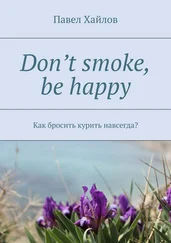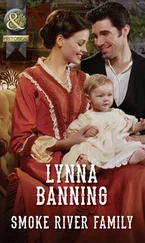“And?”
“And nothing. We hardly spoke. He seemed coarse and stupid and overbearing. Riddled with sin. Reeking of old Smoke.” Charlie shakes his head at the memory. “The fact is, they spend their lives around children. Undisciplined, smoking, silly, ten-year-old children. It rubs off, I suppose. And at the same time, they are bodyguards. Strongmen. Mine, I remember him beating a servant girl who was teasing me. He just took her by the hair and started hitting her, laughing at me over his joke. I had to beg him to stop.”
“You are saying he wasn’t valet material.”
“No. He was a professional brute.”
“Well, it seems Mr. Price is both.”
They finish the game. Charlie wins. He mostly does with games of strategy. Thomas is better at cards: games where your strength is hidden and subject to your opponent’s speculation. He does not particularly like what this says about him.
Thomas says, “I too learned something about Julius. Something you don’t know. Last night, I followed the maid when she was fetching his hot water.” He smiles. “I know where he lives, Charlie. And guess what. His door is just like ours.” He gets up, pushes on the handle, swings it open. “It has no lock.”
Charlie is appalled. “You didn’t!”
“No. Not yet. But I think he must be speaking to Lady Naylor now. And the servants will be having their tea in half an hour. As for the dog, it’s kennelled. I checked.”
“But you can’t—”
“Can’t I, Charlie? He is my enemy. And I want to know why he came.”
ф
The room is in the west wing. If their own room is witness to sunrise and a view of the gardens, Julius’s catches the evening light spilling over woodlands and a rain-swollen brook. Like much of the house, the corridor that leads to his room stands empty and silent. Thomas wonders whether all great houses are like this: stone deserts, traversed by servants in livery at set times of the day. Within these deserts there are small islands of habitation. In their week here, he has only ever seen Lady Naylor in the context of three rooms.
They walk up to the door already feeling like thieves. Though their gait is no different than usual — or is it? — Thomas feels as if their intention is written on their skin. He sniffs the air, studies his breath, to make sure he isn’t smoking. But it isn’t Smoke that’s troubling his blood, it’s a self-consciousness bordering on shame. All the same, he feels no doubt concerning what he is about to do. Julius coming here is an act of aggression, like a move on the chessboard they have just abandoned. It requires a counter.
They arrive at the door. Thomas knocks, loudly, boldly. Charlie winces at the sound. The knock receives no answer.
“You can wait here. At the end of the corridor. Whistle if someone comes.”
Thomas can see Charlie is tempted. He is uncomfortable with this. Not from want of courage. It simply appears wrong to him, not so much a crime as ungentlemanly, against the rules of civilised conduct. Thomas wonders if Charlie would have fewer qualms if Thomas had suggested searching the valet’s room.
“Let’s go,” Charlie says at last. “If they catch us, we are in it together.”
The room is much bigger than the one they share, and more opulently furnished. There is a four-poster bed, a bureau, and several couches; a dozen artful models of sailing ships from the Royal Navy, displayed on shelving that is built into the wall panelling. Julius’s travelling trunk has been unpacked and stored at the top of the heavy chestnut wardrobe. A painting of a fox stalking a chicken graces one wall, an old map of England covers another. The washstand is lined with bottles of scent and silver-handed brushes. It isn’t what Thomas expected — a bunk and an open trunk; a pile of belongings that could be sifted in a few minutes — and for a moment he is unsure what to do. If he has fought the knowledge until now, the room puts an end to his denials. Julius is Lady Naylor’s son. He may not have grown up with her, but this is his space, has been from childhood, each sailing ship a birthday perhaps, until he tired of models and graduated to hunting dogs and rifles and cricket pads hand-tailored to his legs.
Charlie looks at Thomas and recognises his confusion. “Where do we start?”
What he is really saying is: We shouldn’t be here.
“The wardrobe,” Thomas says, walking over.
He does not expect Charlie to do any searching himself.
ф
There isn’t much that would be of any use. No diary hidden under the pillow; no papers or letters on top of the bureau, nor in its shelves, nor in the wastebasket. There is a surprising number of shirts, more than thirty in all, each freshly pressed and of such radiant crispness as to appear unworn. Thomas also finds three pairs of leather gloves; a toy foil and a real sword stick, both carelessly thrown into the back of the wardrobe; an ivory fountain pen with a gold nib. Spurs, a riding crop, a slender horn-handled penknife with a four-inch blade. But no clue, no explanation of why Julius has come there, no secret about his character revealed.
There is one thing though: a wooden box. Thomas notices it because it has the air of something that does not want to be noticed. It is kept on the night table in plain enough sight, but is stacked amidst a pile of books. Almost as though by chance. But somehow too neatly all the same.
The box is quite small and made from a curious varnished wood that shines red in the evening sunlight. It is not light enough to be empty but neither is it particularly heavy; has the wrong sort of dimensions to comfortably hold letters or papers; and emits an ever so slight smell, not unlike that of old leather. That, and it is locked. There is a small silver keyhole, and no key.
Thomas carries it over to the bureau, opens the penknife, inserts its tip into the lock. It takes some fiddling, but the lock is a simple one and turns under pressure. He can feel Charlie frowning at his back, bending forward to see. Thomas opens the box with a flourish and finds (his stomach lurches with the disappointment): cigarettes. Neat rows of them, perhaps as many as six dozen, looking pale and fragile against the lustre of the wood.
“Damn,” he whispers and closes the box.
But Charlie stops him. “Reopen it. Smell them.”
Thomas does so, pushes his nose right up to the cigarettes, then takes one out, runs it under his nose. He has never smoked a cigarette and, come to think of it, has never held one. Even so he recognises the smell of tobacco, can imagine its aroma when lit. Underneath it, though, there is another smell. Darker, tarter, hard to place. Charlie, hanging over his shoulder, has his eyes closed; is rooting through his memory for a trace of this smell.
“Like your undershirt,” he says at last, “when it came back from the laundry. When we were children, I mean. Before Discipline started. The smell of lye, there, at the centre of the chest, and between the shoulder blades, the places where the maid had rubbed away your Soot. But underneath the lye, something else — not Smoke, not sweat, a smell all its own. This smell.”
Charlie’s words take Thomas back to his childhood room and a scene precisely like this one: him sitting on the bed, naked to the waist, taking his undershirt from the clean laundry pile; sitting there, sniffing it before putting it on, sorting the flavours; a vase with flowers in the open window and birdsong. It’s a smell like mushrooms, and ashes, and rain-moistened dirt. A dangerous smell.
“These aren’t cigarettes,” he says, and immediately stuffs four or five in his jacket pocket. Charlie does not object. It is thieving, but there are so many here, a few cigarettes won’t be missed. It’s unlikely Julius keeps a precise count.
Читать дальше












